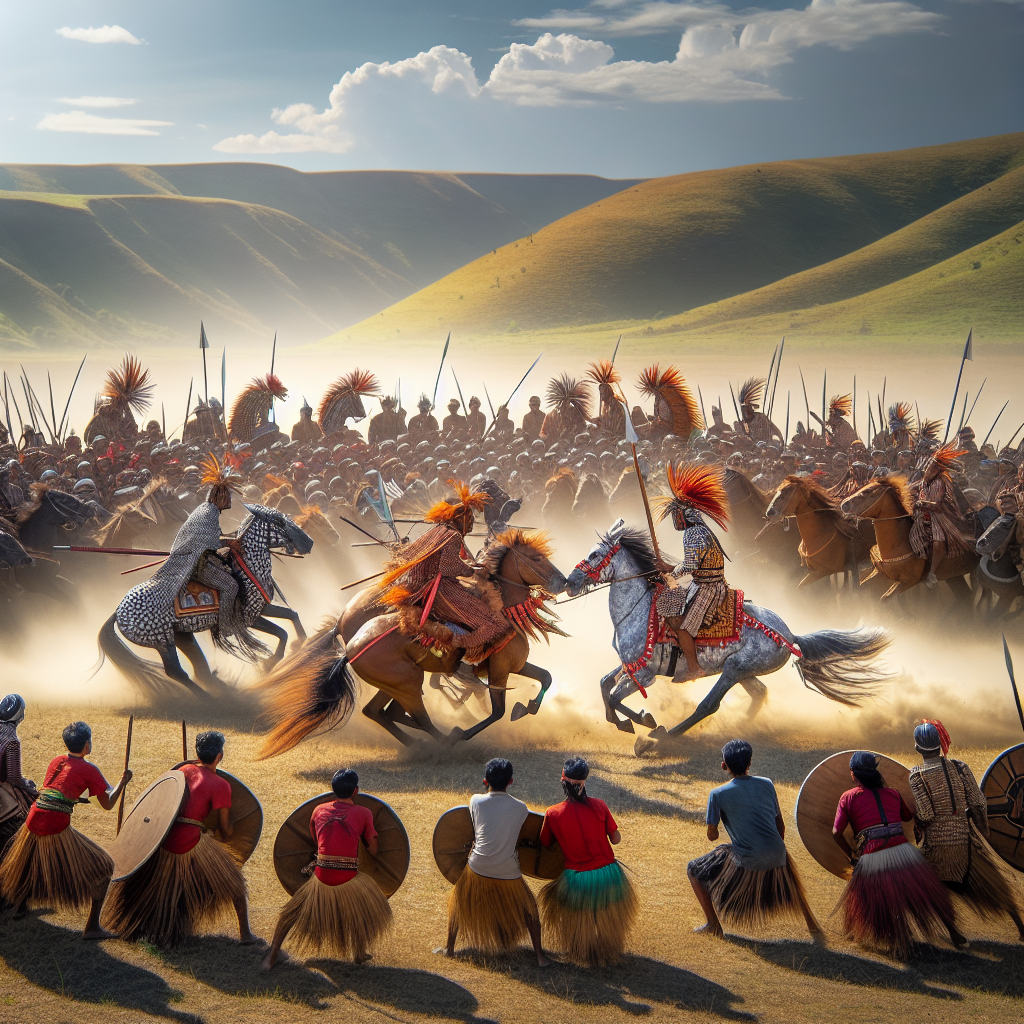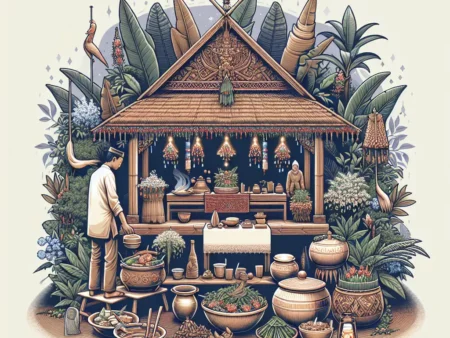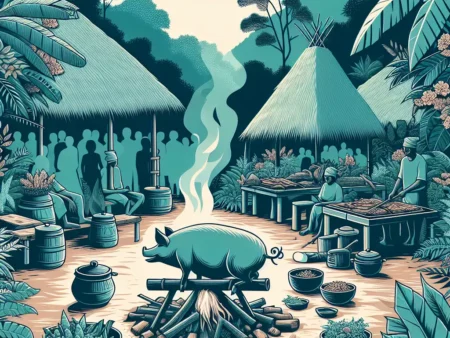Upacara Adat Pasola di Sumba: Tradisi Perang Suku yang melibatkan pertarungan berkuda dengan tombak.
Upacara Adat Pasola di Sumba: Tradisi Perang Suku
-
Table of Contents
Upacara Adat Pasola di Sumba: Tradisi Perang Suku

Introduction
Indonesia is a country rich in cultural diversity, with each region having its own unique traditions and customs. One such tradition that stands out is the Pasola ceremony, a traditional war ritual performed by the Sumba people in the eastern part of Indonesia. This article will delve into the history, significance, and cultural aspects of the Pasola ceremony, shedding light on this fascinating and ancient tradition.
The Origins of Pasola
The Pasola ceremony has its roots in the animistic beliefs of the Sumba people, who inhabit the island of Sumba in eastern Indonesia. The word “Pasola” itself means “war” or “fight” in the local language. The ceremony is believed to have been practiced for centuries, dating back to the time when the Sumba people were still animists.
According to local legends, the Pasola ceremony was introduced by a mythical figure named Marapu, who was believed to be the ancestor of the Sumba people. Marapu was said to have descended from the heavens and taught the Sumba people the art of warfare, including the use of spears and horses. The Pasola ceremony was then established as a way to honor Marapu and seek his blessings for a bountiful harvest and prosperity.
The Ritual
The Pasola ceremony is held annually in February or March, coinciding with the arrival of the nyale sea worms, which are believed to be a sign of fertility and abundance. The ceremony takes place in two different locations on the island of Sumba, namely Kodi and Lamboya.
Preparation
Months before the actual ceremony, the Sumba people begin preparing for Pasola. This includes selecting the best horses, crafting traditional spears, and making offerings to appease the spirits. The community comes together to build a large arena, known as the “Pasola field,” where the ceremony will take place.
The Battle
On the day of the ceremony, two groups of horsemen, representing different clans or villages, gather on the Pasola field. Each group is armed with wooden spears, which they throw at each other while riding their horses. The objective is not to kill or harm the opponents but to spill blood as an offering to the spirits, ensuring a good harvest for the coming year.
The battle is fierce and intense, with riders charging at each other at full speed, trying to hit their opponents with their spears. The horsemen display incredible skill and agility, maneuvering their horses to avoid being hit while simultaneously aiming their spears at their adversaries.
Aftermath
Once the battle is over, the Sumba people believe that the spilled blood will fertilize the land, ensuring a prosperous harvest. The horsemen then gather the nyale sea worms that have washed ashore and offer them as a symbol of gratitude to the spirits.
Significance and Cultural Importance
The Pasola ceremony holds immense significance for the Sumba people, as it is not only a way to seek blessings for a good harvest but also a means of resolving conflicts and maintaining social harmony. The ceremony serves as a platform for different clans and villages to compete peacefully, channeling their aggression and rivalries into a controlled environment.
Furthermore, the Pasola ceremony is deeply rooted in the Sumba people’s spiritual beliefs. They believe that the spilled blood during the battle appeases the spirits and ensures their protection and guidance throughout the year. The ceremony is also an opportunity for the Sumba people to honor their ancestors and connect with their cultural heritage.
Preservation and Challenges
While the Pasola ceremony continues to be practiced by the Sumba people, it faces several challenges in the modern era. The increasing influence of Western culture and the rise of Christianity in the region have led to a decline in the number of participants and spectators.
Additionally, the Pasola ceremony has faced criticism from animal rights activists due to the potential harm caused to the horses during the battle. Efforts have been made to address these concerns by implementing stricter regulations and ensuring the well-being of the horses involved.
Conclusion
The Pasola ceremony is a captivating and ancient tradition that showcases the rich cultural heritage of the Sumba people. It serves as a reminder of the importance of preserving and celebrating indigenous traditions in the face of modernization and globalization.
Through the Pasola ceremony, the Sumba people not only seek blessings for a bountiful harvest but also foster social cohesion and honor their ancestors. It is a testament to the resilience and cultural pride of the Sumba people, who continue to uphold their traditions despite the challenges they face.
As Indonesia continues to evolve, it is crucial to recognize and appreciate the diverse cultural practices that make the country unique. The Pasola ceremony stands as a shining example of the beauty and significance of Indonesia’s cultural heritage.







